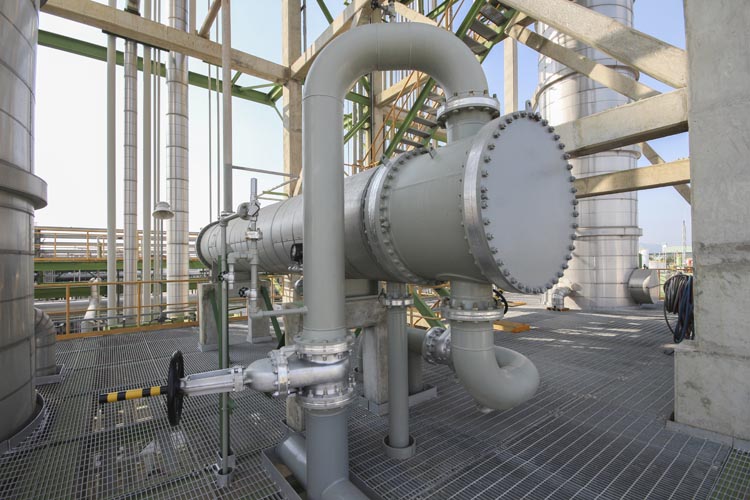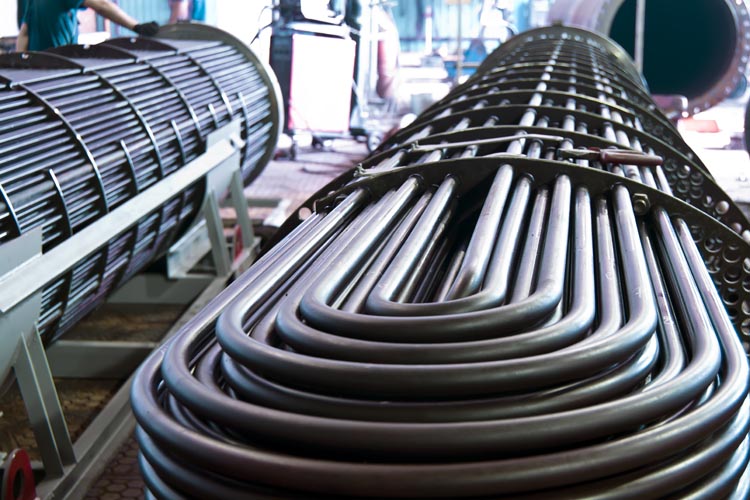

Shell and Tube Heat Exchangers:
Efficient Heat
Transfer for Industrial Applications
Introduction:
- In industrial processes, efficient heat transfer is
crucial for optimal performance and energy savings.
- Shell and Tube Heat Exchangers are widely used in various
industries to facilitate efficient heat transfer between fluids.
- In this article, we will explore the working principles,
advantages, and industrial applications of Shell and Tube Heat Exchangers.
Section 1: What is a Shell and Tube Heat Exchanger?
- Shell and Tube Heat Exchangers are devices designed to
transfer heat between two or more fluids.
- They consist of a shell, which houses multiple tubes, and
the fluids flow through these tubes.
- Heat is transferred from one fluid to another through the
tube walls, facilitating efficient heat exchange.
Section 2: Working Principles of Shell and Tube Heat
Exchangers
- The hot fluid enters the tubes through an inlet, while the
cold fluid enters the shell.
- As the fluids flow, heat is transferred from the hot fluid
to the tube walls and then to the cold fluid.
- The counter-current flow design maximizes the temperature
difference between the fluids, enhancing heat transfer efficiency.
Section 3: Advantages of Shell and Tube Heat Exchangers
- High Heat Transfer Efficiency: Shell and Tube Heat
Exchangers offer high heat transfer coefficients, ensuring efficient heat
exchange.
- Versatility: They can handle a wide range of fluid types,
temperatures, and pressure differentials, making them suitable for diverse
applications.
- Scalability: Shell and Tube Heat Exchangers can be
designed with varying sizes and configurations to meet specific process
requirements.
- Durability: They are built with robust materials, making
them highly resistant to corrosion and ensuring long-term performance.
- Easy Maintenance: Shell and Tube Heat Exchangers are
designed for easy access and cleaning, simplifying maintenance procedures.
Section 4: Industrial Applications of Shell and Tube Heat
Exchangers
- Chemical Industry: They are used in chemical processes for
heating, cooling, and condensing various chemicals and solvents.
- Oil and Gas Industry: Shell and Tube Heat Exchangers play
a vital role in oil refineries and gas processing plants for heat recovery and
temperature control.
- Power Generation: They are used in power plants for
cooling steam in condensers and preheating feedwater.
- HVAC Systems: Shell and Tube Heat Exchangers are employed
in heating, ventilation, and air conditioning systems for efficient temperature
control.
- Food and Beverage Industry: They are utilized for
pasteurization, sterilization, and cooling processes in food processing plants.
Conclusion:
- Shell and Tube Heat Exchangers are essential components in
industrial processes, providing efficient heat transfer and contributing to
energy savings.
- Their high heat transfer efficiency, versatility,
scalability, durability, and ease of maintenance make them a preferred choice
in various industries.
- Selecting the right Shell and Tube Heat Exchanger design
and ensuring regular maintenance are crucial for optimal performance.
TO GET DETAILED INFORMATION ABOUT THIS PRODUCTCONTACT US

Check out our catalog to examine the details of our products.


